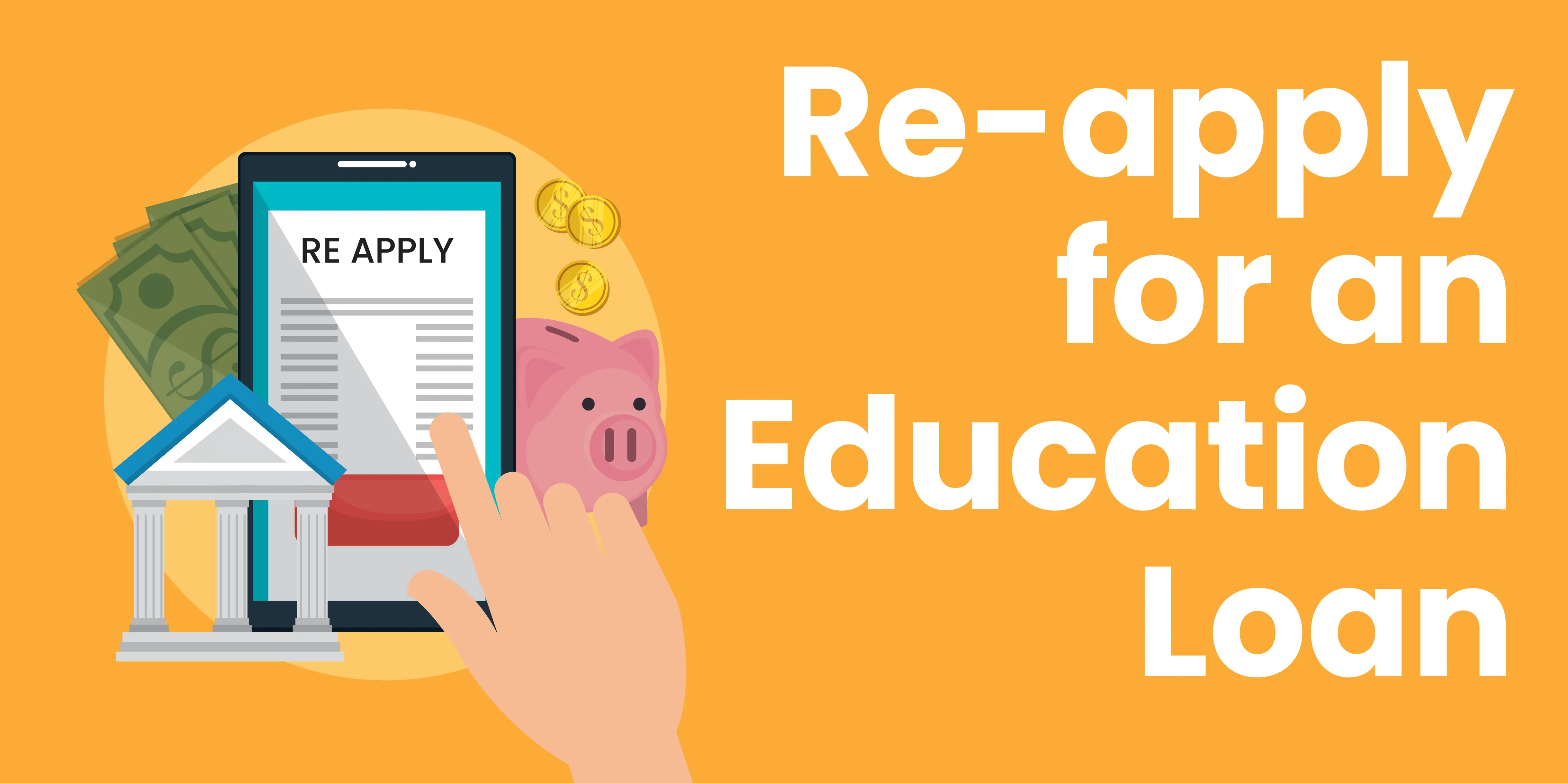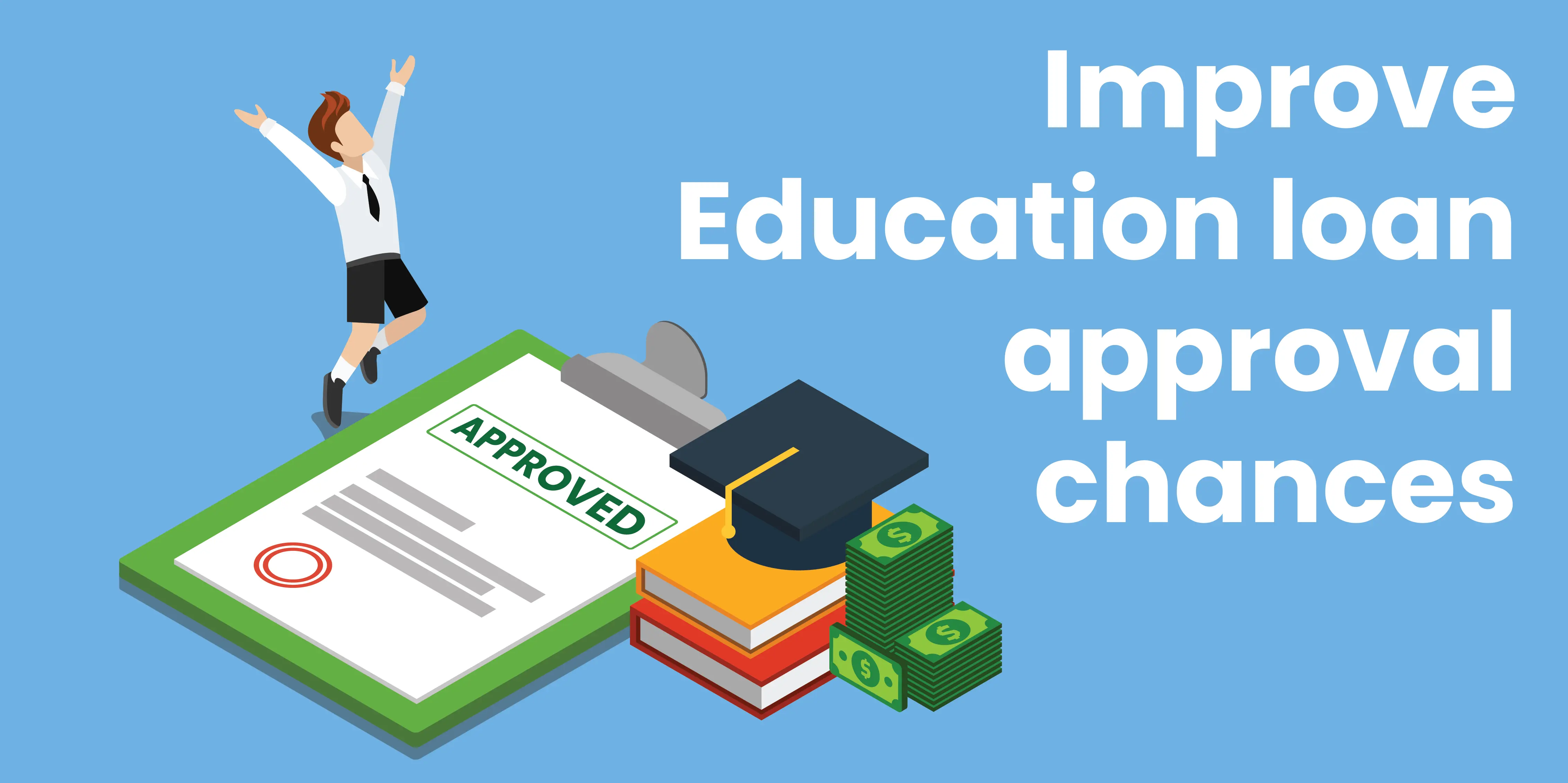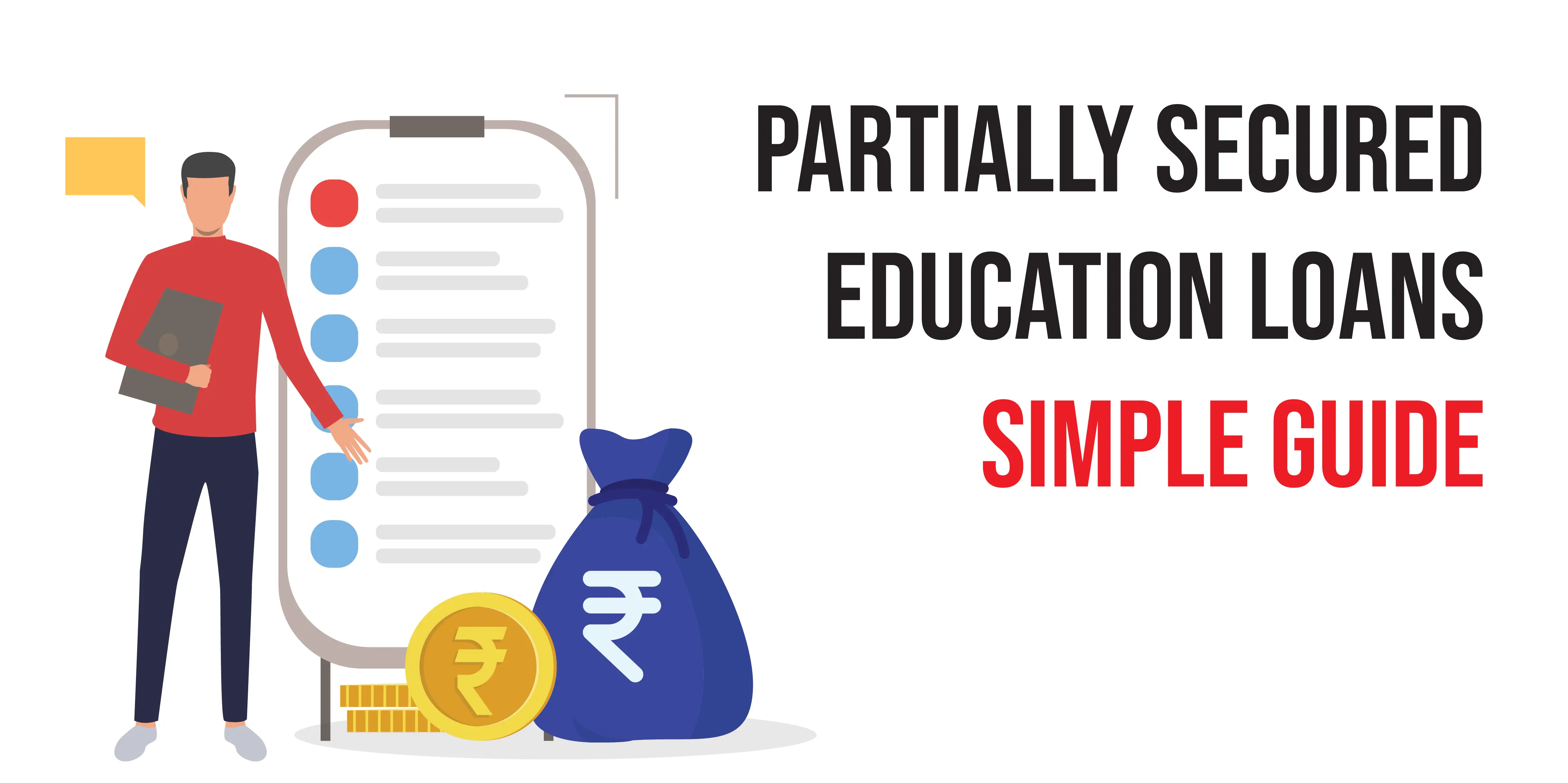https://www.wemakescholars.com/blog/questions-to-ask-before-applying-for-education-loans
Questions to Ask Yourself Before Applying for an Education Loan
Abroad Education Loan | Updated ()

Education loans have become the primary source of funding for many students to pursue higher education. These loans help students cover the expenses associated with pursuing higher studies in India and abroad. However, many students are unaware of important education loan questions they should ask before applying for a student loan.
This article covers the top 5 questions that you should ask yourself when planning to apply for an education loan. We have also covered other important education loan questions to help you make an informed decision.
What are My Education Loan Requirements?
The first thing that any student should do before applying for student loans is understand their education loan requirements.
You should assess the total cost of your education before applying for a student loan. This helps you calculate how much money you would need to borrow from an education loan
You can also avoid over-borrowing or not borrowing enough by understanding your education loan requirements. Consider the cost of expenses associated with your studies, such as the university tuition fees, living expenses, study materials, and other course-related equipment, to calculate your education loan requirement.
Do I Need Collateral to Get an Education Loan?
Whether a student needs collateral to get a student loan depends on the type of loan they are applying for. Collateral in education loans refers to the property of the applicants that is pledged as security for the loan.
Education loans in India are primarily divided into types based on the collateral requirement of the loan.
Secured Education Loans:
A secured education loan, or a collateral education loan, requires applicants to pledge collateral to obtain the loan amount. For education loan requirements exceeding ₹7.5 lakhs, most public banks require collateral as security for the loan amount. The involvement of collateral mitigates the risk for the lenders, thus enabling them to offer favourable loan terms.
- Banks offer lower interest rates and higher loan amounts for secured education loans.
- Banks accept immovable properties and liquid securities as collateral for education loans.
- A secured education loan process is relatively longer than an unsecured education loan.
Unsecured Education Loans:
Unsecured education loans, on the other hand, do not require any collateral to be pledged as security for the loan amount. These loans are provided based on the financial condition of the co-applicant. Lenders thoroughly assess the income and credit score of the co-applicant to process an education loan without collateral.
- Students can get an unsecured education loan without pledging any collateral.
- Private banks and NBFCs offer higher loan amounts and competitive interest rates for an education loan without collateral.
- As there is no collateral involved, these loans are processed way faster than secured education loans.
Now, you don’t necessarily need to pledge any of your properties as collateral security to get an education loan. You can also get an education loan without collateral by involving a co-applicant with good income and a high CIBIL score.
However, you should consider several factors, such as collateral availability, loan amounts, interest rates, processing time, and the co-applicant’s income and credit score, before choosing between secured and unsecured education loans for your studies.
What is the Interest Rate for Education Loans in India?
The interest rate of education loans is one of the major financial concerns for students and their parents. As student loans help students afford higher education, these loans often have lower interest rates compared to other credit services. However, education loan interest rates significantly vary depending on several factors, including the lender, loan type, loan amount, and the income and creditworthiness of the applicants.
- The interest rate of education loans from the public banks starts from 7.55%.
- The education loan interest rates of private banks start from 9.99%.
There are two types of interest rates offered for education loans in India: floating and fixed rates. Choosing the right interest rate for your education loan is crucial for managing your finances during the repayment period. The following are the differences between these education loan interest rates to help you choose the right interest type.
Floating vs Fixed Interest Rates on Education Loans
- Floating Interest rates: The interest rate of an education loan with floating rates doesn’t remain constant and changes according to market conditions. The EMIs of the education loan also change according to the interest rate fluctuations.
- Fixed Interest rates: Unlike floating rates, the interest rate of an education loan with fixed rates remains constant throughout the loan tenure. Many lenders in India fixed interest rates for education loans. As the interest rate remains the same for the entire repayment period, the EMIs will also be constant.
Many students struggle to negotiate their education loan interest rate with their bank. This is where WeMakeScholars, an organization partnered with over 15 public and private lenders, can help you in such situations. When you apply for a student loan through us, our team of experienced financial officers can negotiate the terms of your education loan and offer you the best interest rates. Request a callback today so that our team can help you get the best terms on your education loan.
How does an Education Loan Repayment Work?
An education loan repayment is the process of paying back the student loan funds to the bank over the repayment tenure. Students typically repay their education loans through regular payments during the repayment period.
The repayment period for education loans in India varies from bank to bank. However, the student loan repayment period generally ranges from 10 to 15 years. As per the education loan repayment rules in India, banks offer a moratorium period on student loans. The repayments of education loans begin after the moratorium period ends, providing financial relief to students.
Moratorium Period
- Lenders offer a moratorium period of the course duration plus 6 to 12 months for education loans. It is a grace period during which the education loan repayments do not start.
- Students can repay their education loans in the form of EMIs after the moratorium period ends.
- Although the repayments don’t start during the moratorium period, most lenders charge interest on the principal amount during this period.
Does Taking an Education Loan Affect My Credit Score?
Yes, taking an education loan can affect both you and your co-applicants’ CIBIL scores. Taking an education loan immediately doesn't affect either of your CIBIL scores. However, it doesn’t necessarily have a negative impact on your CIBIL scores.
The impact of an education loan on your credit score mostly depends on your repayment pattern. Your credit score can be reduced or improved according to your repayments. Delayed or missing payments of EMIs on your education loans will result in a reduction of your credit score. And making regular, timely payments to your education loan can even improve your credit score.
Other Questions Before Applying for Education Loans
Apart from the above-mentioned questions, you should also ask yourself other important questions about the education loan eligibility and documentation. Below are the important education loan questions you should know before applying for one.
What are the Education Loan Eligibility Criteria?
One of the most important education loan questions that students should ask themselves is, ‘What are the eligibility criteria for education loans?’. The education loan eligibility criteria vary from bank to bank. Below are the common eligibility criteria for education loans in India.
- Citizenship: Both the student and the co-applicants should be Indian citizens.
- Co-applicant: A co-applicant is typically mandatory education loans. A co-applicant in an education loan is an individual, usually a parent or the guardian of the student. The co-applicant eligibility for an education loan varies by bank. Your co-applicant’s income and CIBIL score should meet the requirements of the lender, especially for an unsecured education loan.
- Admission Status: The student should have secured admission at a well-recognized university in India or abroad.
- Academic Profile: Students are expected to have a good academic history with at least a 50% score in their previous academic records.
- Collateral: To get a secured education loan, applicants should provide a property that matches the loan amount and is accepted as collateral by your bank.
- University: Lenders have their list of recognized universities according to which they sanction student loans. The university that the student is going to should come under the recognized list of universities of the lender.
- Field of Study: Lenders also consider the course you are going to pursue. Lenders prefer offering education loans for courses with a high employability rate.
- Age: Students aged between 16 to 35 are generally eligible for an education loan. And, private lenders typically don’t accept co-applicants aged more than 60 years or nearing their retirement age.
What Documents Are Required for an Education Loan?
Another important question that you should ask yourself before applying for an education loan is, ‘What are the documents required for an education loan?’. The documents required for an education loan vary depending on the lender, loan type, and the co-applicant’s profile. The following are the common documents required for an education loan.
- KYC Documents: Documents proving the identity and address of the student and the co-applicant. They include:
- A photo ID proof(Aadhaar card, Voter Id, Driving license, etc.),
- PAN card, and
- Passport.
- Admission Letter: Students should submit an admission letter from the university proving their acceptance into the university.
- Academic Records: Students should provide their previous academic records, such as the 10th,12th, and undergraduate marksheets.
- Collateral Documents: While taking an education loan for abroad studies, applicants should submit all the collateral documents required by their bank.
- Financial Documents of the Co-applicant: Documents that prove the financial condition of the financial co-applicant are required, especially for unsecured education loans. These documents can vary depending on whether the co-applicant is salaried or self-employed.
- Additional documents: Lenders can also require additional documents such as:
- Passport-size photos of the applicant and the co-applicant
- Applicable test score results, such as CAT, IELTS, TOEFL, and GRE.
Conclusion
Education loans make higher education more accessible by helping students cover their educational expenses. These loans help students pursue higher education in India and abroad. However, most students are unaware of the important factors they should know before applying for student loans. Understanding your education loan requirement is the first thing you should do before applying for an education loan. Learning about how education loan repayments work and it’s impact on CIBIL score can help you manage your finances during the repayment period.
Contact WeMakeScholars to resolve all your education loan questions. We are an organisation dedicated to providing expert education loan support and guidance to students. When you apply for an education through us, our team of expert financial officers will analyze your details and help you get the best education loan according to your profile. Request a callback today to get in touch with our team and get a smooth and stress-free education loan journey.





Kindly login to comment and ask your questions about Scholarships & Education Loans